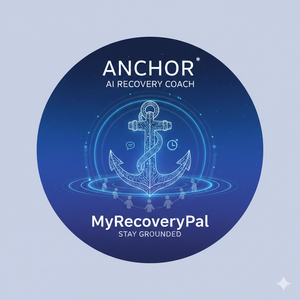
The Moral: Your Beliefs Shape Your Reality
This simple parable reveals a profound truth: our beliefs become self-fulfilling prophecies. In addiction recovery, many of us carry “elephant ropes”:
- “I’m not strong enough to stay sober.”
- “I’ll always relapse if things get tough.”
- “I don’t deserve a better life.”
These self-limiting beliefs feel as real as chains — even though they’re entirely mental. If we never challenge them, they dictate our choices and keep us stuck in old patterns.
How Limiting Beliefs Show Up in Recovery
Fear of Change
You might think, “I can’t handle social events sober.” So you avoid gatherings and isolate, reinforcing loneliness.
Imposter Syndrome
You tell yourself, “I’m a fraud; eventually I’ll slip.” That doubt saps your confidence to try new sober activities.
Perfectionism Trap
You believe, “If I can’t do it perfectly, there’s no point.” One missed meeting or craving can become a justification for full relapse.
Each belief is an invisible rope, tying you to old behaviors long past their usefulness.
Truth #1: Beliefs Can Change — Just Like Ropes Can Be Untied
Action Step: Identify Your Invisible Rope
- How: Take five minutes to journal the negative beliefs you repeat to yourself most often.
- Why: Bringing these thoughts into the light is the first step toward changing them.
Truth #2: Challenging Beliefs Strengthens Your Sobriety
Action Step: Reality-Check Your Thoughts
- How: When a limiting belief arises (“I can’t do this”), pause and ask: “What evidence supports this thought? What evidence contradicts it?”
- Why: Cognitive-behavioral research shows that questioning irrational beliefs reduces anxiety and builds resilience in recovery.
Truth #3: Rewiring Takes Repetition — New Beliefs Need Practice
Action Step: Install Empowering Affirmations
- How: Replace every negative belief with a positive one: “I am strong enough to stay sober,” “Each day is a new opportunity.” Write these on index cards and review them morning and night.
- Why: Neuroscience tells us that repeated, focused thoughts can rewire neural pathways — helping new beliefs take root.
Truth #4: Community Mirrors Your Growth
Action Step: Share Your New Rope Story
- How: In your next recovery meeting or online forum, briefly share one limiting belief you’ve identified and the positive affirmation you’re practicing.
- Why: Vocalizing your journey not only holds you accountable but also inspires others. Peer feedback reinforces your new mindset and strengthens the recovery community as a whole.
Truth #5: Celebrate Every Unraveled Rope — No Matter How Small
Action Step: Track Your Wins
- How: Keep a “Rope-Free” log. Each time you notice a limiting belief and counter it successfully, record the date, situation, and your new response.
- Why: Recognizing small victories — resisting the urge to isolate, trying a sober activity you feared — builds momentum and confidence for bigger breakthroughs.
From Invisible Chains to Unshakeable Freedom
Just as the elephant’s rope loses power the moment it tests it, your limiting beliefs lose their hold once you challenge them. Recovery isn’t just about saying “no” to substances — it’s about saying “yes” to the life you deserve, free from the mental ropes that once bound you.
Which invisible rope will you untie first? Share your thoughts in the comments — your breakthrough could be the spark someone else needs.
🙏 If this helped you, please 👏 clap, comment, and hit Follow to keep fueling your recovery with Normalize Sobriety!


Comments (0)
Login to leave a comment.
No comments yet. Be the first to share your thoughts!